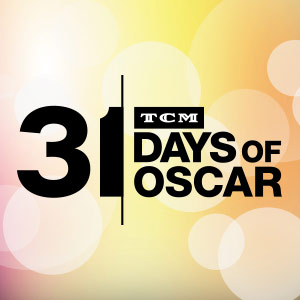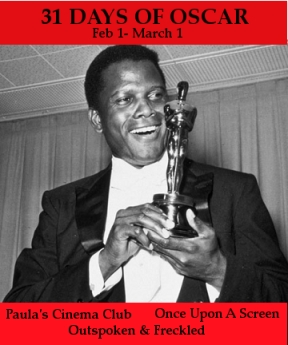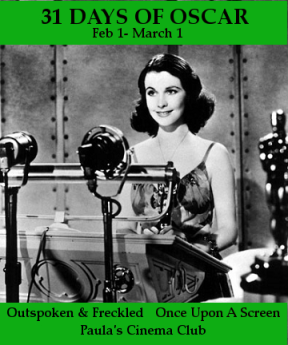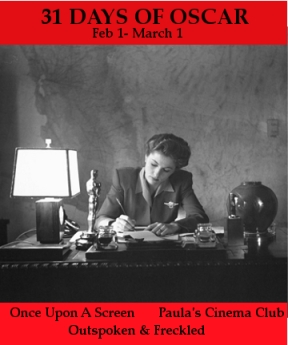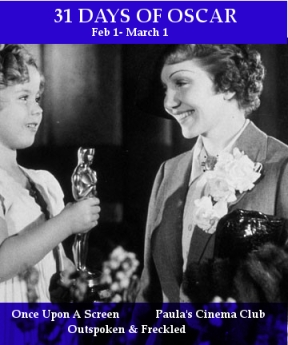The year is 1933. According to astronomers, "one of the first observations suggesting the existence of an invisible dark matter came in 1933 when astronomer Fritz Zwicky noticed that galaxy clusters were more energetic than they should be, according to the mass of visible stars in them, and he proposed dark matter to explain the discrepancy."* Yes, darkness was all around in 1933 but there was indeed an inexplicable surge of energy in the air. This year represented a tremendous pinnacle of news headlines in history, rarely seen before...
-Hitler's rise to power followed by his systematic genocide of millions of Jews and other citizens
-Inauguration of our 32nd President Franklin Delano Roosevelt and his promise to irradicate the Great Depression
-end of Prohibition
-Mt. Rushmore is dedicated
-1st Drive-In theater is opened
-Golden Gate bridge construction commences
-countless federal programs start to stimulate the U.S. economy such as: FDIC, PWA, and National Recovery Act
-Congress passes 1st minimum wage law
-FM radio is patented
-1st airplane to exceed record-breaking 300 mph
-1st solo flight around the world
-Lou Gehrig breaks baseball record by playing 1,308th consecutive game
-Albert Einstein arrives in the U.S. as a refugee from Germany
1933 was a year that despite such dark and troubling times, there was also a backlash of incredible hope and creative achievements, unparalleled to any other time in history. This is perfectly reflected in the artistic accomplishments of film. Here is a sampling of some of the best of the best of 1933...
KING KONG (1933):
Merian C. Cooper's and Ernest B. Schoedsack's (both uncredited) KING KONG (1933) was a masterful love story on a colossal scale and like never seen before. It's a story of a rag-tag film crew who turn into thrill-seekers as they discover the greatest adventure of their lives. On a remote island that's been forgotten by time, they encounter a violent world of prehistoric creatures, primitive natives and a giant gorilla- who falls for beauty. From an attempt to capture and exploit this fifty foot (or so the poster projects) anomaly of nature, Kong is taken to New York and reveals that he is not so beastly as all assume. With the mastery of Ray Harryhausen, Kong evokes such incredible sympathy through pathos that beauty is not the only one to fall in love with him, we all do.
->With a budget of $670,000 KING KONG has garnered over $1,856,000 in its original release.
GOLD DIGGERS OF 1933:
Mervyn LeRoy's GOLD DIGGERS OF 1933 is my favorite musical of all time. The story is as simple and fun as a musical should be. A millionaire (Dick Powell) goes incognito to save an unemployed troupe of actors/singers/dancers and helps save the day. They put on a spectacular show and find love, too. And to say it's a spectacular show is truly a gross understatement. Thanks to the genius that is Busby Berkeley, the musical numbers are breath-taking. The set designs are finely-tuned in choreography, resulting in brilliant songs, dancing and original costumes. With song classics like "We're In The Money" and "Pettin' In The Park" the musical numbers are unforgettable. But the closing number that tops them all is a surprisingly somber dose of the realism of the times, "Remember My Forgotten Man." The cast is a delightful array of talent, including: Warren William, Joan Blondell, Ginger Rogers, Ruby Keeler, Guy Kibbee, Ned Sparks, and Aline MacMahon. And the tip I can give regarding this film: it's the perfect film to watch when you're feeling down and out (which is exactly the effect this film was shooting for.)
-> Nominated for an Oscar: Best Sound
42nd STREET:
Lloyd Bacon's 42nd STREET (1933) is yet another behind-the-scenes ramp-up to a Broadway musical premiere featuring the brilliant Busby Berkeley musical numbers. The story deals with love triangles from the show financial backer to the star of the show to the chorus girl- who ultimately replaces the lead at the last-minute. More catchy tunes emerge including: "Forty-Second Street," "Shuffle Off To Buffalo," and "You're Getting To Be A Habit With Me." The cast repeats many of the same actors from GOLD DIGGERS OF 1933 plus more including: Dick Powell, Bebe Daniels, Warner Baxter, Ruby Keeler, George Brent, Ginger Rogers, Una Merkel, Ned Sparks and Guy Kibbee.
-> With a budget of $439,000, this was a box office success of $2,250,000
-> Nominated for 2 Oscars including Best Picture and Best Sound
DUCK SOUP:
Leo McCarey's DUCK SOUP (1933) is an over-the-top silly musical comedy that pokes fun at politics. In the tiny state of Freedonia, things are a mess of financial ruin. But the chaos and utter silliness really ramps up as they borrow money from wealthy widow Teasdale (Margaret Dumont) who appoints Rufus T. Firefly as the new President (Groucho Marx) who mixes it up with spies (Chico and Harpo Marx) from neighboring Sylvania. This is considered by many to be the best of all the Marx Brothers films and stars all four brothers (Groucho, Chico, Harpo and Zeppo.) As always with a good Marx Brothers' film, the best part is the madcap mayhem and goofy writing that keeps everyone in stitches...
Chicolini: "Now I aska you one. What has a trunk, but no key, weighs 2,000 pounds and lives in a circus?"
Prosecutor: "That's irrelevant."
Chicolini: "Irrelephant? Hey, that'sa that answer. There's a whole lot of irrelephants in the circus."
Despite it being considered best of the Marx Brothers films and the 6th top-grossing film in 1933, critics were less than flattering. With its overt mockery of politics, Mussolini himself banned it in Italy. Regarding its significance Groucho dismayed, "What significance? We were just four Jews trying to get a laugh."
FOOTLIGHT PARADE:
Lloyd Bacon's FOOTLIGHT PARADE (1933) is another dazzling musical spectacular with the mammoth-scale productions of Busby Berkeley. This time James Cagney joins the list of talent as he portrays Chester Kent, who is challenged by a rival and battles against time to create three major musical stage productions. The cast is stellar again: Joan Blondell, Ruby Keeler, Dick Powell, Frank McHugh, Guy Kibbee, and Hugh Herbert. There's nothing subtle about these Pre-Code musical numbers: "Honeymoon Hotel," "By A Waterfall," and "Shanghai Lil." They're all brimming with incredible song and dance and the most gorgeous set design. In particular, 'the human waterfall' is a visual feast. It's virtually impossible to watch this film without smiling, tapping your feet and finding yourself humming these catchy tunes for hours to come.
THE INVISIBLE MAN:
James Whale's THE INVISIBLE MAN (1933) takes H.G. Wells' classic story of mad scientist to a whole new level of innovation. Starring Claude Rains is (credited simply as "the invisible man") the scientist who discovers the magic formula for invisibility and goes insane in the process. What makes this film so entertaining are the special effects. Considering the time, it's still impressive and somehow surprisingly effective when you see the scenes of unraveling bandages and even a riderless bicycle strolling down the street. That, and Una O'Connor's screeches. It's remains a classic of horror in an age of high-tech film making. Now that's magic!
BABY FACE:
Alfred E. Green's BABY FACE (1933) is the ultimate Barbara Stanwyck's woman-gone-bad Pre-Code. Lily (Barbara Stanwyck) climbs the social and economic ladder with her body and feminine wiles to go from the speakeasy to the penthouse. Here she gets advice on how to conduct herself on her last few bucks:
Baby Face (1933) -- (Movie Clip) Not A Slave
Barbara Stanwyck in a Pre-Code? Sublime! Some of the other fabulous cast: George Brent, John Wayne, Donald Cook, Alphonse Ethier, Henry Kolker, Margaret Lindsay, and Douglass Dumbrille.
This film is a typical Pre-Code in that it was so racy the original version (which was lost until this uncensored cut was discovered in 2004 at the Library of Congress in Dayton, Ohio and restored a year later) was deemed inappropriate (even for this "pre-Code" period when Hays Code enforcement didn't really get hard-core until the next year) then re-cut to pass the NY state Censorship Board and launched with great success.
DINNER AT EIGHT:
What a cast! What a fun film! George Cukor's DINNER AT EIGHT (1933) is exactly what the title alludes to- a film surrounding the stressful moments and an intimate look at life of the wealthy preparing for a dinner party, to help save the family business and challenges of clashing classes. Basically, pure fluff and humor all the way. With a splendid cast (Marie Dressler, John Barrymore, Wallace Beery, fellow Kansas native Jean Harlow, Lionel Barrymore, Edmund Lowe, plus Billie Burke) and snappy, sharp writing to match:
Kitty: I was reading a book the other day.
Carlotta: Reading a book?
Kitty: Yes. It's all about civilization or something. A nutty kind of a book. Do you know that the guy says that machinery is going to take the place of every profession?
Carlotta: Oh, my dear, that's something you need never worry about.
DINNER AT EIGHT (1933) is a showcase of the utterly carefree wealthy class mixed with street-sharp humor that makes this another perfect example of Pre-Code magic as typified this year in film.
LITTLE WOMEN:
George Cukor's LITTLE WOMEN (1933) is just one of many film versions of Louisa May Alcott's beloved classic novel. Most of us have read the book and/or seen more than one film adaptation of this story of four sisters Jo, Beth, Meg and Amy who grow into women and discover their own paths in life through their father serving in the Civil War and their strong mother leading the charge of these young women as they explore adulthood, love and life's passions. With an impeccable cast (Katherine Hepburn, Joan Bennett, Paul Lukas, Edna May Oliver, Jean
Parker, Frances Dee, Henry Stephenson, Douglass Montgomery, John Lodge,
Spring Byington, Samuel S. Hinds...) this classic lives up to its high expectations. In my humble opinion, most of the credit for this gem goes to the director, George Cukor, and the main star, Katherine Hepburn. I can't think of any other actress who embodies the role of the ever strong, down-to-earth and talented 'Jo' than Hepburn.
QUEEN CHRISTINA:
Rouben Mamoulian's QUEEN CHRISTINA (1933) is loosely based on the real-life 17th Century queen of Sweden and her challenges and choices of ruling and being reign to the throne as a woman. It was both a great commercial and critical success. After a long hiatus from film, this marked Greta Garbo's return to the screen after a 18 month absence. She insisted on partnering with her co-star of many features, John Gilbert. While Garbo was popular for her smoldering close-ups in the silents, she was also well-received again in 'talkies.' Unfortunately, Gilbert's transition (many say due to his less than appealing voice) was not so well received. This was their last film appearance together.
According to IMDb, there were 1,476 film titles released in 1933. Too many great ones to adequately mention here so I only highlighted a few. Some others not detailed above include two classics featuring Mae West: Wesley Ruggles' I'M NO ANGEL and Lowell Sherman's SHE DONE HIM WRONG (including a very young and sexy Cary Grant). The year 1933 also marked the screen debut of Fred Astaire in Robert Z. Leonard's DANCING LADY (starring Clark Gable and Joan Crawford). Astaire returned the same year to light the world on fire with his on-screen dancing partnership with Ginger Rogers in Thornton Freeland's FLYING DOWN TO RIO. The film triumphs that were created in this year are truly overwhelming.
This year was exceptional yet not surprising as films are frequently a product of the times and environment. From dark and racy Pre-Codes to shimmering grandiose of Busby Berkeley musicals and much more, this was a year of rare qualities. In the darkest of times, the stars that emerge shine the brightest thanks to the darkness of the heavens. I will happily continue to gaze upon the stars of 1933...
This was my contribution to the CLASSIC MOVIE HISTORY PROJECT Blogathon- hosted by bloggers extraordinaire, "Movies Silently," "Silver Screenings" and "Once Upon A Screen." I chose the year 1933. To explore more writings upon the years 1915-1950, check out amazing bloggers on the hosts' sites. Enjoy!
*References: Read more at:
http://phys.org/news/2012-09-dark-effect-inertial-mass.html#jCp
